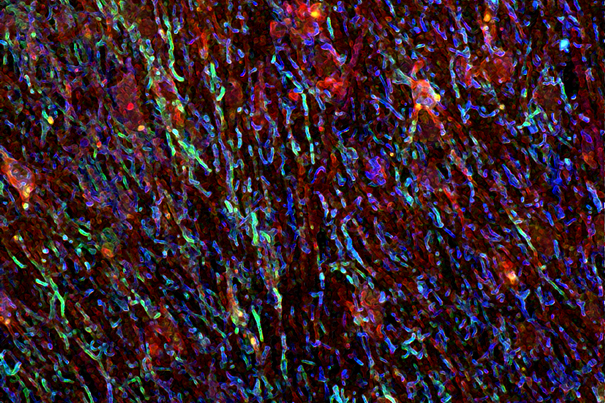Health
-

Break in the case for long COVID investigators
Research highlighting chronic inflammation opens path to treating illness that affects millions of Americans

-

The problem with the school smartphone debate
Study finds most districts already regulate devices. Is the real issue enforcement?

-

Just who gets a say at FDA public drug-approval hearings?
New research shows negative voices are relatively rare in drug approval hearings.
-

Your digital twin might save your life
AI, statistics offer new possibilities for personalized medicine
-

Time to legalize psychedelics?
Campus debate weighs therapeutic need vs. safety questions
-

How a toxin from the gut microbiome may help spark colorectal cancer
Findings suggest colibactin may be promising target for disease prevention

-
Prospect of shorter treatment and cure for chronic myelogenous leukemia
Chronic myelogenous leukemia (CML) is a slowly progressing type of blood cancer that develops in the bone marrow. Researchers discovered that CML stem cells die in response to inhibition of a protein called Ezh2. Drugs that target the protein are currently being tested in clinical trials for other cancers.
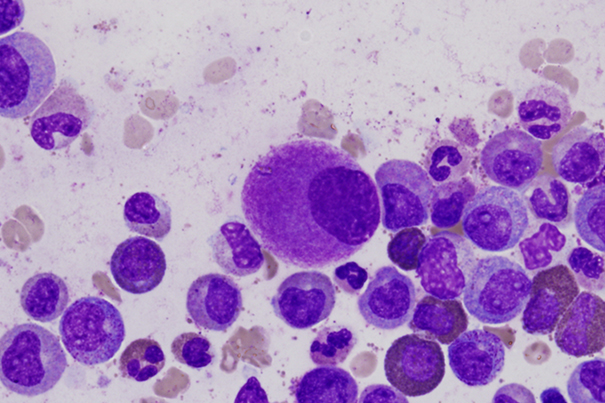
-
Finally, hope for a young patient
A gene therapy trial points to a healthier future for a young patient suffering from a rare immune disease.
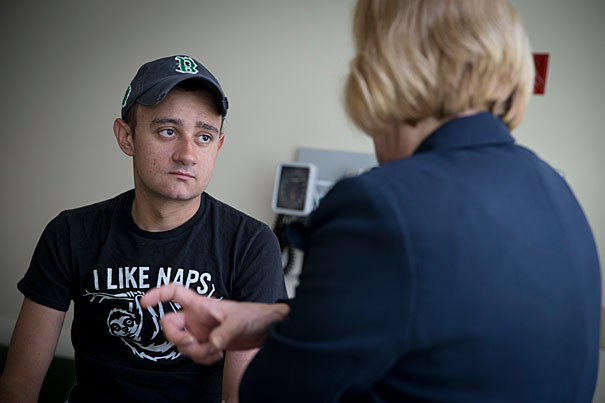
-
Clues to how ‘super-agers’ retain young memories
Researchers examined a group of older adults with extraordinary memory performance and found that certain key areas of their brains resembled those of young people.

-
A cinematic approach to drug resistance
Scientists at Harvard Medical School and Technion-Israel Institute of Technology have built a giant petri dish to visually demonstrate how bacteria move as they become immune to drugs.
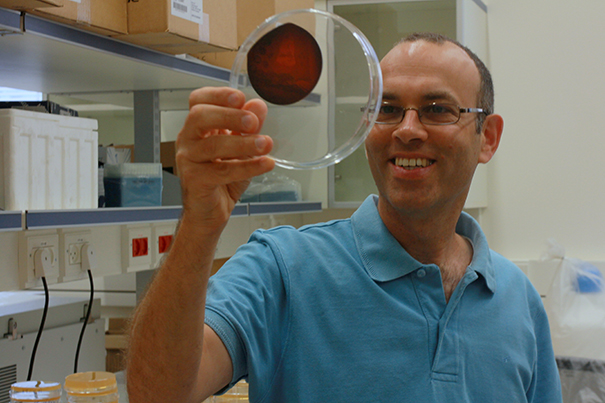
-
Gene therapy for sickle cell disease passes key preclinical test
A precision-engineered gene therapy virus, inserted into blood stem cells that are then transplanted, markedly reduced sickle-induced red-cell damage in mice with sickle cell disease, researchers from Dana-Farber/Boston Children’s Cancer and Blood Disorders Center reported in the Journal of Clinical Investigation.
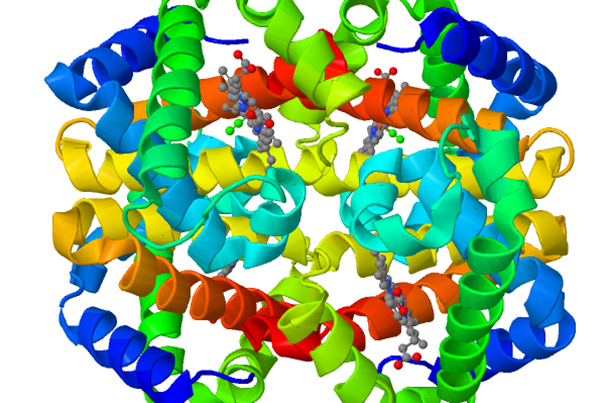
-
From leaf to itch
Harvard researchers have riddled the role of a molecule key to eruption of the torturous blisters as well as an antibody that interrupts the inflammatory response, opening the way to potential relief for careless hikers.

-
For freshmen, food for thought
Campus food experts say the first year in college is a time for change at the dining table as well as in the classroom.

-
Harvard researchers pinpoint enzyme that triggers cell demise in ALS
Scientists from Harvard Medical School (HMS) have identified a key instigator of nerve cell damage in people with amyotrophic lateral sclerosis, or ALS, a progressive and incurable neurodegenerative disorder.

-
Finding biological barcodes
Two recent studies have shown that cells early in development can be marked with a genetic barcode that later can be used to reconstruct their lineage.

-
How the brain develops
In an effort to get a clearer picture of how the brain and the connections between its regions change throughout development, Harvard scientists and researchers from three other universities will share a $14 million grant to support one of the most comprehensive brain-imaging studies ever undertaken.
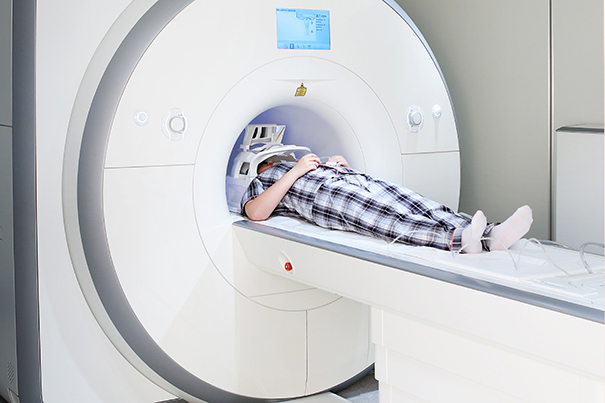
-
Unsafe levels of toxic chemicals found in drinking water of 33 states
A Harvard Chan School study has found that drinking-water samples near industrial sites, military fire-training areas, and wastewater-treatment plants have the highest levels of fluorinated compounds, which have been linked with cancer, hormone disruption, high cholesterol, and obesity.

-
Similar designs, 100 million years apart
A study found that both Rusingoryx atopocranion, a relative of the wildebeest, and hadrosaur dinosaurs evolved large bony domes on their foreheads, which were likely used as resonating chambers to warn of predators and communicate with others.

-
The parrot knows shapes
Despite a visual system vastly different from that of humans, tests showed the bird could successfully identify both Kanizsa figures and occluded shapes. The findings suggest that birds may process visual information in a way that is similar to humans.

-
Auditory cortex nearly identical in hearing and deaf people
The neural architecture in the auditory cortex — the part of the brain that processes sound — of profoundly deaf and hearing people is virtually identical, a new study has found. The study could point the way toward potential new avenues for treating deafness.

-
Research suggests new avenues for attacking ALS
Harvard researchers have found evidence that bone marrow transplantation may one day be beneficial to a subset of patients suffering from ALS.
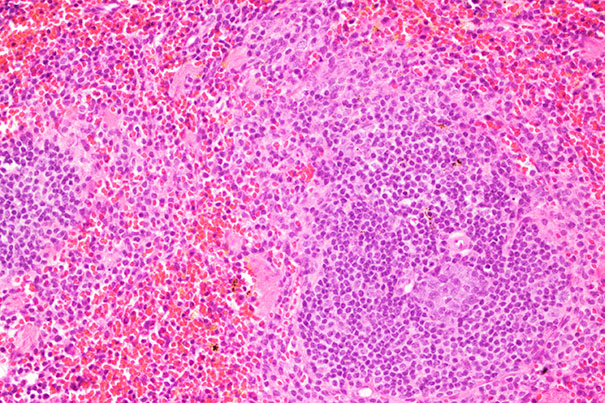
-
Giving Huntington’s disease the one-two punch
The identification of a molecular compound that combats Huntington’s disease by means of two separate mechanisms may be the watershed moment in the battle against neurodegenerative diseases.

-
Clues to camouflage
Chromatic aberration may explain how cephalopods can demonstrate such remarkable camouflage abilities despite being able to see only in black and white.

-
The bionic cardiac patch
Harvard Professor Charles Lieber and other scientists conducted a study that describes the construction of nanoscale electronic scaffolds that can be seeded with cardiac cells to produce a bionic cardiac patch.

-
New approach to severe bacterial infections and sepsis
Researchers at Harvard-affiliated Boston Children’s Hospital are looking at new potential avenues for controlling both sepsis and the runaway bacterial infections that provoke it.
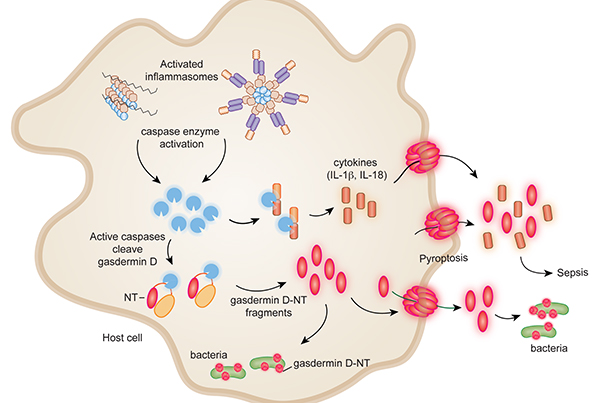
-
Unsaturated fats linked to longer, healthier life
A three-decade study conducted by Harvard Chan School lends further support to recent findings on fat intake and long-term health.

-
Against suicide, a century of little progress
Matthew Nock, a psychology professor, talked to the Gazette about a recent federal report showing a sharp rise in suicide in the United States.

-
Acting dean for Medical School
Barbara McNeil, health policy expert and longtime faculty member, to serve as interim dean at Harvard Medical School.

-
First area cell transplantation center
An expansive effort by several Harvard-affiliated units and hospitals has created the first cell transplantation center in the Boston area.
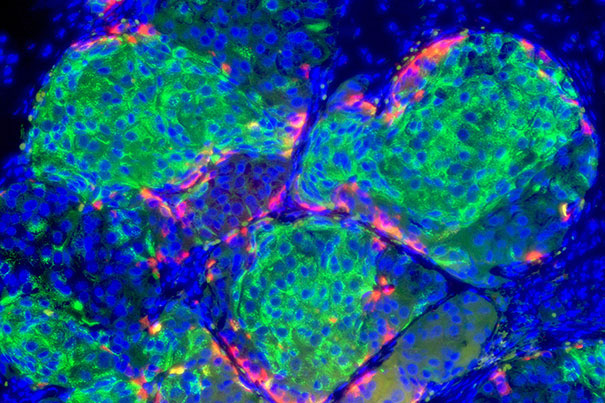
-
Eye-opening complexity
The findings of Professor Jeff Lichtman and postdoctoral fellow Joshua Morgan have unveiled unexpected neural complexity in the thalami of mice, potentially challenging a number of core tenets of brain science.

-
Making bone marrow transplants safer
Harvard Stem Cell Institute scientists have taken the first steps toward developing a treatment that would make bone marrow-blood stem cell transplantation safer.
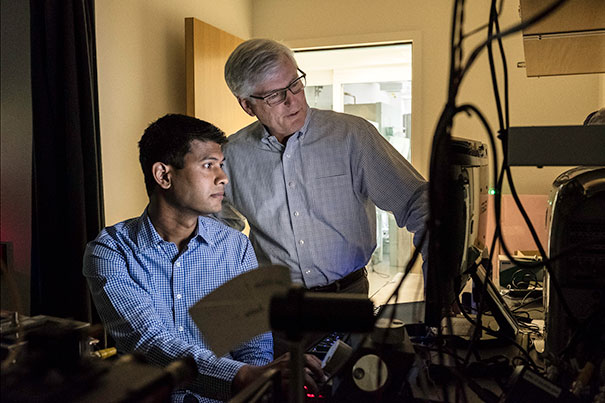
-
A thinner, flatter lens
A new meta-lens works in the visible spectrum, seeing smaller than a wavelength of light. Because of this development, high-efficiency, ultra-flat, or planar, lenses could replace heavy, bulky ones in smart phones, cameras, and telescopes.

-
A new platform for discovering antibiotics
Harvard chemists have created a platform for discovering antibiotics that they hope will shorten the time and difficulty involved in measuring their effectiveness, even as the body’s resistance to current antibiotics is rising.
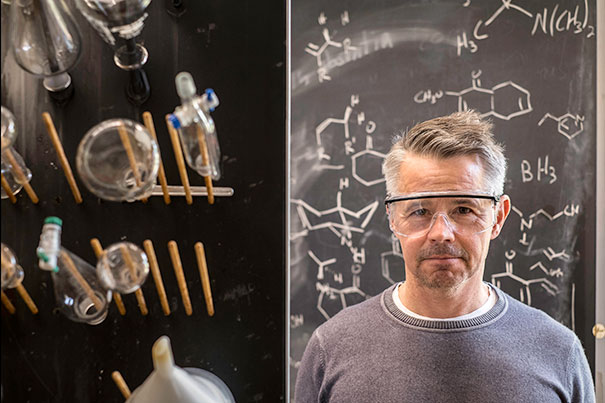
-
Harvard licenses genotyping platform
Harvard University has granted a license to Aldatu Biosciences Inc., an early-stage diagnostics development company, for a novel genotyping platform that may help clinicians treating HIV to determine more quickly the most effective medication for each patient.
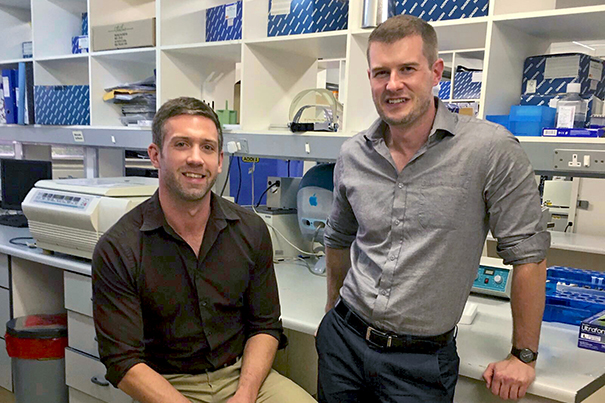
-
The eyes tell
A new study shows that gaze-following develops in monkeys in a way that’s nearly identical to humans, suggesting that the behavior has deep evolutionary roots.

-
Gut-brain connection moves into MS territory
Using pre-clinical models for multiple sclerosis and samples from MS patients, a Harvard-affiliated team found evidence that changes in diet and gut flora may influence astrocytes in the brain, and, consequently, neurodegeneration, pointing to potential therapeutic targets.
